Cuscuta chinensis
[Family and medicinal part] This product is the mature seed of the herbaceous plant Cuscuta chinensis of the Convolvulaceae family.
[Nature and flavor and meridians] Spicy, sweet, and neutral. Enters the liver and kidney meridians.
[Effects] Tonify the kidney and consolidate the essence, nourish the liver and improve eyesight.
[Clinical application] 1. Used for kidney deficiency impotence, spermatorrhea, premature ejaculation, tinnitus, frequent urination, dribbling, kidney deficiency low back pain, and leucorrhea.
Cuscuta chinensis can help yang and benefit essence, so it is suitable for impotence, spermatorrhea, frequent urination, and kidney deficiency low back pain. It can be used with wolfberry, Tong Tribulus, Eucommia, etc.
2. Used for blurred vision.
This product can nourish the liver and kidney, so it can be used for liver and kidney deficiency, blurred vision, etc. It can be used with wolfberry, Ligustrum lucidum, Tong Tribulus, etc.
In addition, this product can help the spleen to stop diarrhea, and can be used to treat long-term diarrhea caused by spleen deficiency. It is often used in combination with Atractylodes macrocephala, Poria cocos, Chinese yam, lotus seeds, etc.
[Prescription name] Cuscuta chinensis (dried for use). Cuscuta cake (cooked and made into blocks).
[General dosage and usage] Three to five coins, decocted and taken.
[Comments] 1. Cuscuta chinensis is soft and liquid, not warm or dry, nourishing but not greasy, and nourishes the liver and kidneys. It is a medicine that balances yin and yang, and can be used regardless of kidney yang deficiency or kidney yin deficiency.
2. Cuscuta chinensis and Psoralea corylifolia can both nourish the kidney and boost yang, and can be used for symptoms of coldness in the lower abdomen. However, Cuscuta chinensis has a mild effect and a weaker effect in boosting yang; Psoralea corylifolia has a stronger effect in boosting yang, but has no effect of nourishing the liver and improving eyesight.
【Literature Excerpt】《本经》: “It is used to heal injuries, replenish deficiencies, strengthen Qi and strength, and nourish the body. Remove the juice and dry it [blacken it].
《药性本草》: “It treats coldness in men and women, replenishes essence and nourishes marrow.”
《汤液本草》: “It nourishes the liver and wind deficiency.”
《药化义》: “It can be used to enter the kidney, replenish without being harsh, replenish Yin and strengthen Yang; …it can help the spleen, treat chronic diarrhea, indigestion, and fatigue of the limbs; as the spleen qi gradually becomes stronger, the defensive Qi will rush, and the muscles will be nourished.”
Cuscuta chinensis
Functions and indications: Nourish the liver and kidney, replenish essence and marrow, and improve eyesight. Treats soreness of waist and knees, spermatorrhea, thirst, residual urine, and dark eyes. (1) Nourishing the liver and kidneys: This product is a commonly used medicine for tonifying the kidneys, reducing urine, and stopping spermatorrhea. It is used for soreness of waist and knees, impotence, and spermatorrhea caused by liver and kidney deficiency. This product is soft and moist, and nourishes the liver… [Details]
Usage and dosage: Oral administration: decoct in water, 3 to 5 qian; or make into pills or powders. For external use: stir-fry, grind and apply.
Other names: Cuscuta chinensis, tusizi, wuniangtengmimi, huangtengzi, longxuzi, rosizi, huangwangzi, huangluozi, beanxuzi, chanlongzi, huangsizi
[Pinyin] tu si zi
[Ingredients] Cuscuta chinensis contains resin glycosides and sugars.
Cuscuta chinensis contains glycosides and vitamin A substances, and its content is 0.0378% calculated as vitamin A.
Soybean Cuscuta chinensis contains β-carotene, γ-carotene, 5,6-epoxy-α-carotene, dandelion xanthophylls and lutein.
[Processing and collection] Harvest the plant when the fruit is ripe in autumn, dry it in the sun, beat the seeds and remove impurities.
[Identification of medicinal materials]
(1) Take a small amount of this product and soak it in boiling water. The surface is sticky; when the seed coat is heated and boiled until it breaks, a yellow-white spiral embryo can be exposed, which looks like spinning silk.
(2) The powder of this product is yellow-brown or dark brown. The epidermal cells of the seed coat are square or rectangular in cross section, with thickened side walls; the surface view is round polygonal, with significantly thickened corner walls. The palisade cells of the seed coat are in sheets, with two rows in cross section and with radiant bands; the surface view is polygonal and wrinkled. The endosperm cells are polygonal or round, with fuzzy powder particles in the cell cavity. The cotyledon cells contain fuzzy powder particles and fat oil droplets.
[Pharmacological Action]
Dodder soy sauce (made with dodder and bean cake), infusion, and tincture can enhance the contractility of the isolated toad heart. The former increases the heart rate. The latter two reduce it. It can reduce blood pressure, reduce spleen volume, inhibit intestinal motility, and excite the isolated uterus in anesthetized dogs. The median lethal dose of dodder seed alcohol extract water solution injected subcutaneously into mice is 2.465 g/kg. No poisoning symptoms occur when 30-40 g/kg is administered orally. Oral administration of 0.05 g/120 g dodder seed soy sauce, extract, and tincture to mice for 70 consecutive days does not affect the growth and development of the animals, and no pathological changes are observed.
[Processing] Use raw or stir-fried with salt water.
[Functions and indications] Nourishes the liver and kidneys, benefits the essence, and improves eyesight. Treats soreness of the waist and knees, spermatorrhea, thirst, residual urine, and dark eyes.
(1) Nourishes the liver and kidneys: This product is a commonly used medicine for nourishing the kidneys, reducing urine, and stopping spermatorrhea. It is used for soreness of the waist and knees, impotence, and spermatorrhea caused by liver and kidney deficiency. This product is soft and moist in nature, and nourishes the liver and kidneys without being dry.
(2) Calming the fetus: Used for those who are weak and prone to miscarriage, often combined with mistletoe and knotweed.
① “Ben Jing”: “It is used to heal injuries, replenish deficiencies, increase energy and strength, make people healthy, and long-term use can improve eyesight.”
② “Lei Gong Pao Zhi Lun”: “It replenishes human Wei Qi and helps human tendons and veins.”
③ “Bie Lu”: “It nourishes muscles and strengthens yin, strengthens tendons and bones, and treats coldness in the stem, spontaneous discharge of semen, residual urine, bitter mouth, dry thirst, and cold blood accumulation.”
④ “Yao Xing Lun”: “It treats deficiency and coldness in men and women, replenishes semen and marrow, relieves back pain and cold knees, and treats thirst and heat.”
⑤ “Rihuazi Bencao”: “It replenishes five kinds of labor and seven kinds of injuries, treats spermatorrhea, hematuria, and moisturizes the heart and lungs.”
⑥ Wang Haozhan: “It replenishes liver wind deficiency.”
⑦ “Shandong Chinese Medicine”: “It treats women who often have miscarriages.”
【Nature and flavor】
Spicy and sweet, flat.
① “Ben Cao”: “Tastes spicy, neutral.”
② “Bie Lu”: “Sweet, non-toxic.”
③ “Ben Cao Zheng”; “Tastes sweet and spicy, slightly warm.”
Enters the liver and kidney meridians.
① “Ben Cao Jing Shu”: “Spleen, kidney, liver meridians.”
② “Ben Cao Xin Bian”: “Enters the heart, liver, kidney meridians.”
[Usage and Dosage]
For internal use: decoct, 3 to 5 qian; or make into pills or powder. For external use: stir-fry and grind for application.
【Dos and Don’ts】
①《Compendium of Materia Medica》: “Wine is good. Dioscorea and pine resin are used as its accompaniments. It is bad for licorice.”
②《Compendium of Materia Medica》: “Kidneys have a lot of fire. Those with strong yang but not impotence should avoid it. Those with dry and hard stools should also avoid it.”
③《Depei Materia Medica》: “Pregnant women, those with uterine bleeding, strong yang, hard stools, kidney fire, and yin deficiency and fire are prohibited from using it.”
【Storage】Put it in a jar in a dry place to prevent moisture and moth
【Side effects】The median lethal dose of alcohol extract of Cuscuta australis is 2.465g/kg when injected subcutaneously into mice. No poisoning symptoms were observed when 30-40g/kg was administered orally. Cuscuta australis soy sauce, extract, and tincture were administered orally into mice at a dose of 0.05g/120g for 70 consecutive days. It did not affect the growth and development of the animals, and no pathological changes were observed. [Meridian] Meridian_Liver Meridian
[Plant morphology]
Annual parasitic herb, the whole plant is hairless. The stem is thin, winding, yellow, and leafless. The flowers are clustered in the axils of leaves, and the bracts and bracteoles are scale-like; the calyx is cup-shaped and 5-lobed; the corolla is white, bell-shaped, twice as long as the calyx, and has 5 lobes without ends, and the lobes are recurved outward; the stamen filaments are flat and short, with scales at the base, rectangular, and fringed at the edges; the ovary has 2 chambers and 2 styles. The capsule is flat spherical, completely covered by the corolla, and the lid is cracked. There are 2 to 4 seeds. The flowering period is from July to September, and the fruiting period is from August to October.
Growing on the edge of the field, wasteland and shrubs, it often parasitizes on plants such as Leguminosae. It is mainly produced in Shandong, Hebei, Shanxi, Shaanxi, Jiangsu, Heilongjiang, and Jilin.
【Clinical application】Used for kidney deficiency, low back pain, impotence, premature ejaculation, turbid urine, leucorrhea, frequent urination; restless fetal movement, threatened abortion; liver and kidney deficiency, blurred vision, decreased vision. In addition, this product can also be used for spleen deficiency, poor appetite, loose stools, and is often used with Atractylodes macrocephala, Chinese yam, Poria cocos, Codonopsis pilosula, etc. Oral administration: decoction: dosage 10~15 grams, or human pill powder. External use: stir-fry, grind and apply.
【Medicinal part】It is the seed of Cuscuta or Cuscuta chinensis of the Convolvulaceae family. The plant morphology is detailed in the “Dodder” article.
【From which book】 “Ben Jing”
Where is the main origin of Cuscuta?
Cuscuta grows on the edge of fields, roadsides, wastelands, bushes, and sunny places on hillsides. It is mostly parasitic on herbaceous plants such as Leguminosae, Asteraceae, and Chenopodiaceae.
It is produced in most parts of the country, mainly in the northern region. It is mainly produced in Liaoning, Jilin, Hebei, Henan, Shandong, Shanxi, Jiangsu and other places.
Where is the main medicinal part of Cuscuta?
Medicinal part of Cuscuta:
The medicinal part of this product is the dried mature seeds of Cuscuta australis R.Br. or Cuscuta chinensis Lam. of the Convolvulaceae family.
The plants are harvested when the fruits are ripe in autumn, dried, the seeds are beaten, and impurities are removed. Through different processing methods, Chinese herbal medicines such as Cuscuta, stir-fried Cuscuta, salt Cuscuta, and wine Cuscuta can be produced. Characteristics of the medicinal part of Cuscuta:
This product is spherical, with a diameter of 1~2mm. The surface is gray-brown to brown, rough, and the hilum is linear or oblate. It is solid and not easy to crush with fingernails. It has a slight smell and a light taste.
How do ancient books record Cuscuta?
Cuscuta was first recorded in Shennong’s Herbal Classic: “It can heal broken wounds, replenish deficiencies, increase energy and strength, make the body fat and healthy, remove black spots on the face, and improve eyesight after long-term use, lighten the body and prolong life.
“Famous Doctors’ Records”: “It can nourish muscles and strengthen yin, strengthen tendons and bones, and treat coldness in the stem, spontaneous discharge of essence, residual urine, bitter mouth and dry thirst, and cold blood accumulation.
“Leigong Paozhi Lun”: “It can replenish human Wei Qi and help human tendons and veins.
“Yao Xing Lun”: “It can treat men and women with coldness, replenish essence and benefit marrow, remove back pain and cold knees, prolong life after long-term use, and keep the complexion happy. It can also treat thirst and heat.
“Rihuazi Materia Medica”: “It can replenish five kinds of labor and seven kinds of injuries, treat spermatorrhea, hematuria, and moisten the heart and lungs.
“Compendium of Materia Medica”: “It can nourish the kidney and liver, warm the spleen and help the stomach.
ప్రభావాలు మరియు సమర్థత
The main effects of Cuscuta are to nourish the liver and kidney, consolidate the essence and reduce urine, stabilize the fetus, improve eyesight, and stop: external use to eliminate wind and remove spots.
What are the main effects and clinical applications of Cuscuta?
Cuscuta is used for liver and kidney deficiency, soreness of waist and knees, impotence and spermatorrhea, enuresis and frequent urination, kidney deficiency and fetal leakage, fetal movement disorder, blurred vision and tinnitus, spleen and kidney deficiency diarrhea; external treatment of vitiligo.
Raw Cuscuta is good at nourishing the liver and improving eyesight, and is mostly used for dark eyes.
Salt Cuscuta is neither warm nor cold, and it can nourish the liver and kidney, and can enhance the effect of nourishing the kidney and consolidating. It is often used for impotence, premature ejaculation, spermatorrhea, loose stools, and insufficiency of the fetus. Wine Cuscuta cake not only enhances the function of warming and nourishing the spleen and kidney, but also improves the effect of decoction. It is mostly used for impotence and spermatorrhea, spleen deficiency and loose stools or diarrhea. The function of stir-fried Cuscuta chinensis is similar to that of raw Cuscuta chinensis, but stir-frying can improve the decoction effect.
Impotence, uterine coldness and infertility
·This product is sweet and warm and enters the kidney. It is good at replenishing kidney yang and kidney yin. It is a product that balances yin and yang. It is used to treat kidney deficiency, lower deficiency, male impotence, female uterine coldness and other symptoms.
It is often used with deer antler, Cistanche deserticola, stalactite powder, etc. to treat kidney deficiency and impotence;.
Or used with wolfberry, Schisandra chinensis, etc. to treat impotence and spermatorrhea.
Spermatorrhea and enuresis, leucorrhea and turbidity
·This product replenishes the yin and yang of the kidney, is not dry or greasy, and is used to treat kidney deficiency, kidney failure, spermatorrhea and enuresis, leucorrhea and turbidity, and has the function of consolidating sperm and reducing urine. · Often used with Alpinia oxyphylla, Cnidium monnieri, Allium chinense, etc. to treat the elderly and weak, dizziness and weak feet, frequent urination at night, turbid stranguria and spermatorrhea;
Or used with white Poria cocos and Echeveria oleracea to treat spermatorrhea and leukorrhea, or with mulberry silkworm cocoons, deer antlers, chicken gizzard lining, etc. to treat incontinence.
Weak feet and knees, pain in waist and feet
This product nourishes the liver and kidneys, replenishes essence and marrow, strengthens tendons and bones, and is used to treat liver and kidney deficiency, low back pain and foot weakness.
Blurred eyes, unclear vision
This product nourishes the kidneys and liver, so that the essence and blood flow upward and have the ability to improve eyesight.
·Used to treat liver and kidney deficiency, dark eyes and blurred vision caused by lack of nourishment.
Spleen deficiency, loose stools, diarrhea and poor appetite
This product can both help yang and replenish essence, without being dry or greasy, and is a good medicine for tonifying the liver, kidney and spleen.
·Used to treat spleen and kidney deficiency, poor appetite, diarrhea and loose stools, etc., often used with yam, Euryale ferox, fish maw, etc.;·Or used with ginseng, psoralea corylifolia, cornus officinalis and other products that replenish qi, strengthen yang and consolidate.
Viscera deficiency, yin deficiency and thirst
This product is sweet and warm, and replenishes both yin and yang. It is used to treat kidney water deficiency, true yin deficiency, and thirst. It can be used alone; it can also be used alone as pills and powders to stop thirst;
Use this product with Schisandra chinensis to treat kidney water dryness, dry mouth and tinnitus, weak feet and blurred vision,
This product is used with ginseng, Cistanche deserticola, etc. to treat viscera deficiency and long-term coldness of the lower abdomen.
The fetal origin is not solid, and the fetal movement is bleeding
This product replenishes the liver and kidney, consolidates the Chong and Ren meridians, and has the function of calming the fetus and stopping bleeding. It is often used with Dipsacus asper, Viscum album, donkey-hide gelatin, etc.
The use of Chinese medicine requires syndrome differentiation and treatment, and clinical individualized treatment. Therefore, please consult a professional doctor before taking the medicine and use it in a standardized manner under the guidance of a doctor.
What are the compound preparations containing dodder?
There are several types of compound preparations containing dodder
Chanfuxin Granules
Nourishes the kidney and nourishes blood, replenishes qi and nourishes yin, and activates blood circulation and removes blood stasis. It is used for symptoms such as lochia retention, postpartum hemorrhage, back and abdominal pain, shortness of breath and sweating, and difficulty in defecation caused by incomplete uterine involution after childbirth, and helps to restore body shape after childbirth.
Zishen Yutai Pills
Nourishes the kidney and spleen, replenishes qi and nourishes essence, nourishes blood and stabilizes the fetus, and strengthens the body. It is used for miscarriage caused by deficiency of both spleen and kidney and instability of Chong and Ren (preventing and treating habitual abortion and threatened abortion)
Zuogui Pills
Nourishes the kidney and replenishes yin. It is used for deficiency of true yin, sore waist and weak knees, night sweats, fatigue and dry mouth.
Shenbao Syrup
Warms and replenishes kidney yang, consolidates essence and replenishes qi. It is used for impotence and spermatorrhea, back and leg pain, lack of energy, frequent urination at night, fear of cold, menorrhagia, and thin leucorrhea caused by kidney yang deficiency and insufficient essence.
Futu Pill
It has the effect of strengthening the kidney, astringing sperm, and stopping leucorrhea. It is used for spermatorrhea, turbid urine, and leucorrhea in women.
Yi Shen Liquid
It has the effect of nourishing the kidney and supporting yang. It is used for physical weakness and urination problems caused by insufficient kidney yang.
Modern research progress on Cuscuta chinensis
Modern research shows that Cuscuta chinensis mainly contains flavonoids (hyperoside, dodder glycoside), organic acids (chlorogenic acid), trace elements such as calcium, potassium, phosphorus, and amino acids; it has sex hormone-like effects, delays aging, resists osteoporosis, enhances immunity, resists heart, brain, and kidney ischemia, and promotes melanin formation.
వినియోగ పద్ధతి
Dodder can be taken orally or applied externally. Generally, decoction pieces of dodder are used. Please follow the doctor’s instructions for specific medication.
How to use dodder correctly?
When decoction of dodder is taken orally, the common dosage is 6~159.
When applied externally, take an appropriate amount of dodder, stir-fry it, grind it into powder and apply it to the affected area.
Through different processing methods, Chinese herbal medicine pieces such as dodder, stir-fried dodder, dodder cake, salt dodder, wine dodder, and wine dodder cake can be produced.
Different processing methods have different effects. Please follow the doctor’s instructions for specific medication.
Dodder is generally used in decoctions, decoctions are taken, and powders or pills can also be taken. However, the use of Chinese herbal medicines must be differentiated and treated, and should be used under the guidance of professional Chinese medicine practitioners. They should not be used at will, and Chinese medicine prescriptions and advertisements should not be believed at will.
In addition, dodder can also be soaked in wine. When soaked in wine with Euryale ferox and Cornus officinalis, it has the effect of nourishing the liver and kidney and consolidating essence. When soaked in wine with Achyranthes bidentata and fried Eucommia ulmoides, it has the effect of nourishing the liver and kidney and strengthening the waist and knees.
How to prepare dodder?
The preparation methods of dodder include dodder, fried dodder, dodder cake, salt dodder, wine dodder and wine dodder cake, as follows: dodder: take the original medicinal material, remove impurities, wash and dry
Stir-fried dodder: take the clean dodder and put it in the pot, heat it with a slow fire and stir-fry until it is slightly yellow. When there is a popping sound, take it out and let it cool.
Dodder cake: take dodder, put it in the pot, add appropriate amount of water, shovel while cooking, cook until it spits out silk, take it out, leave it overnight, flatten it, cut it into pieces and dry it.
Salt dodder: Take clean dodder and mix it with salt water, simmer it for a while, put it in a pot, heat it over a low heat and fry it until it is dry, take it out and let it cool.
Wine dodder: Take clean dodder, mix it with rice wine, put it in a suitable container and cook until the wine is absorbed, take it out and dry it.
Wine dodder cake: Take clean dodder and put it in a pot, add appropriate amount of water and cook it until it cracks, keep turning it, and when the water is absorbed and it becomes thick porridge, add rice wine and mix it well, take it out, press it into large pieces, cut it into rectangular pieces (about 2cm long, about 1.5cm wide, about 1cm thick), and dry it.
Which drugs should be used with dodder at the same time with special attention?
. It should not be used with antihypertensive drugs such as risperidin and antihypertensive spirit, which can cause orthostatic hypotension, etc. It should not be used with cardiac glycosides, which will increase the sensitivity of the heart to it and produce cardiac glycoside poisoning.
The combined use of traditional Chinese medicine and traditional Chinese and Western medicine requires syndrome differentiation and treatment, and clinical individualization Treatment.
If you are taking other medicines, please consult a doctor before taking the medicine, and inform the doctor of all your diagnosed diseases and the treatment you are receiving.
ఔషధ సూచనలు
Although Cuscuta chinensis replenishes yin and yang, it still tends to replenish yang and has astringent properties. Therefore, people with yin deficiency and hyperactivity of fire and dry stools and short and red urine should not take it.
What precautions should be taken when using Cuscuta chinensis?
· People with yin deficiency and hyperactivity of fire, dry stools, and short and red urine should not take it.
· It should not be used in combination with antihypertensive drugs and cardiac glycosides.
· The use of Chinese medicine requires syndrome differentiation and treatment, and clinical individualized treatment. Therefore, please consult a professional doctor before taking the medicine, and use the medicine in a standardized manner under the guidance of the doctor.
How to identify and use Cuscuta chinensis?
There are often the following confusions when using Cuscuta chinensis:
Raw Cuscuta chinensis and salt Cuscuta chinensis
The two are prepared in different ways, and the scope of efficacy is different. Raw dodder is good at nourishing the liver and improving eyesight. It can be used externally to eliminate wind and remove spots. It is mostly used for dark eyes.
It can be used externally to treat vitiligo.
Salt dodder is neither warm nor cold. It can balance the yin and yang of the liver and kidney, and can guide the medicine to the kidney, enhance the effect of nourishing the kidney, consolidating essence and stabilizing pregnancy. It is often used for impotence and spermatorrhea, enuresis and frequent urination, kidney deficiency and fetal leakage, and fetal movement disorder.
Dodder and mistletoe
Dodder and mistletoe are two different Chinese medicinal materials, and their sources and applications are different. Dodder is the dried mature seeds of Cuscuta australis R.Br, or Cuscuta chinensis Lam, a plant of the Convolvulaceae family. Mulberry parasite is the dried stems and branches with leaves of Taxillus chinensis (DC.) Danser, a plant of the Morus altissima family.
Both medicines belong to the liver and kidney meridians, and have the effects of nourishing the liver and kidney, consolidating Chong and Ren meridians, and calming the fetus. They are used for fetal leakage and restless fetal movements caused by liver and kidney deficiency and Chong and Ren meridians not being consolidated.
But Cuscuta can also nourish yang and yin, consolidate essence and reduce urine, and is used for symptoms such as kidney deficiency, sore waist and knees, impotence and spermatorrhea, frequent urination and enuresis, and excessive leucorrhea; it can also nourish the liver and improve eyesight, and stop diarrhea, and is used for symptoms such as dark eyes due to liver and kidney deficiency, and loose stools and diarrhea due to spleen and kidney deficiency. Mulberry parasite can also nourish blood, mainly nourishing blood and calming the fetus; Cuscuta is mainly used to nourish the kidney and calm the fetus. Mulberry parasite can also dispel wind and dampness, strengthen tendons and bones, and is used for rheumatism, sore waist and knees, and weak tendons and bones.

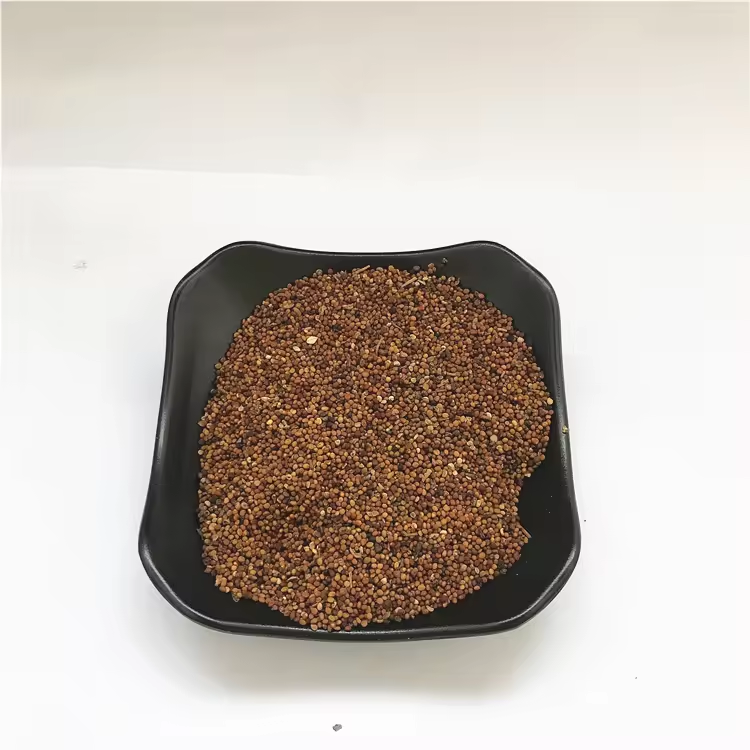



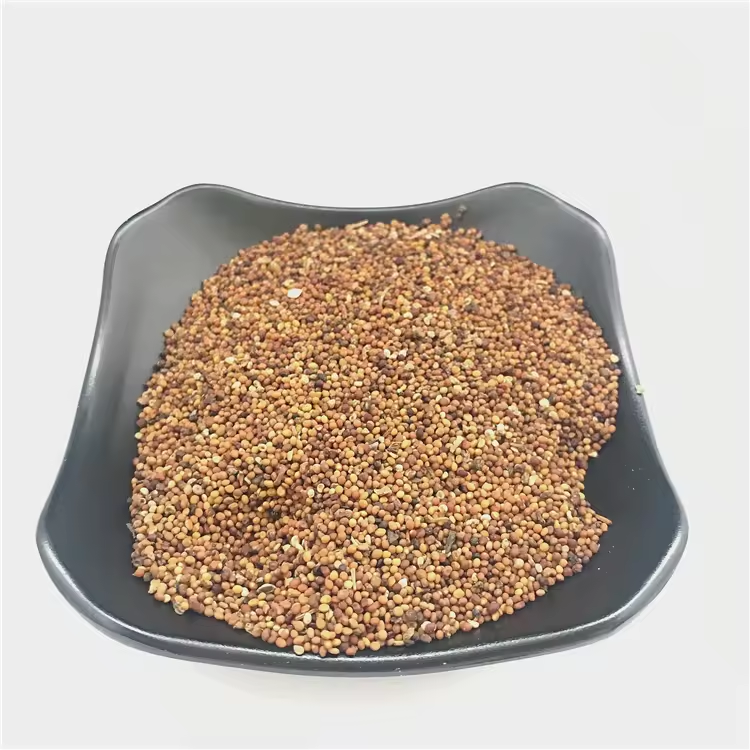
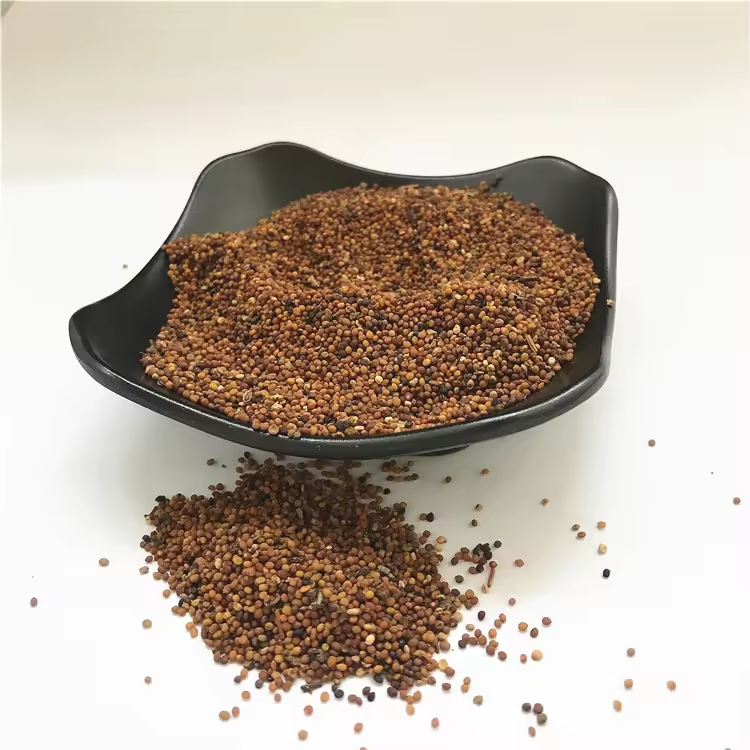
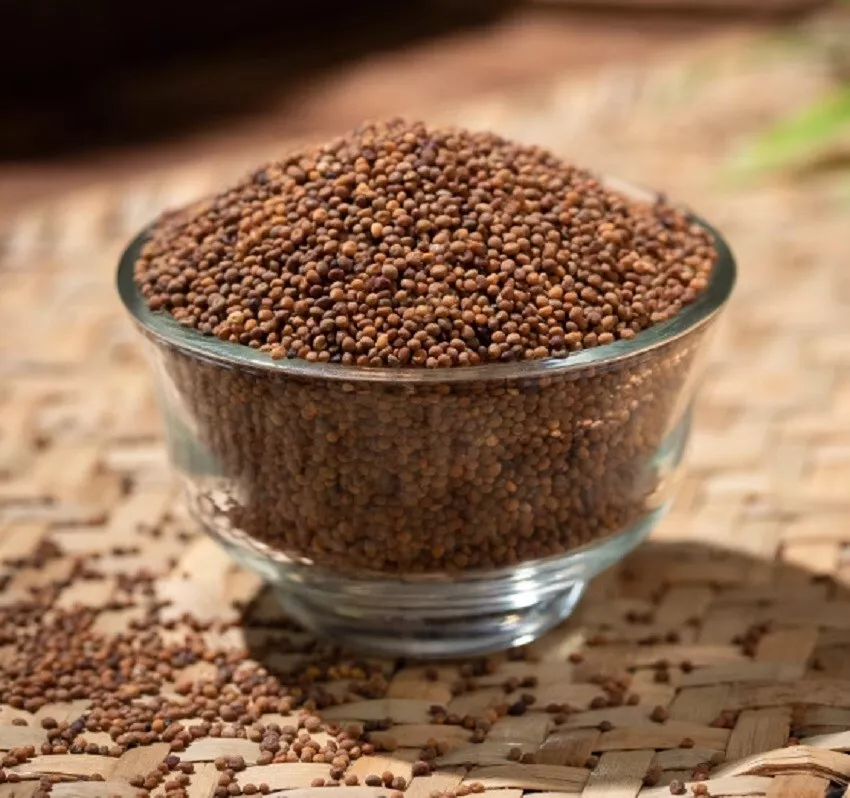
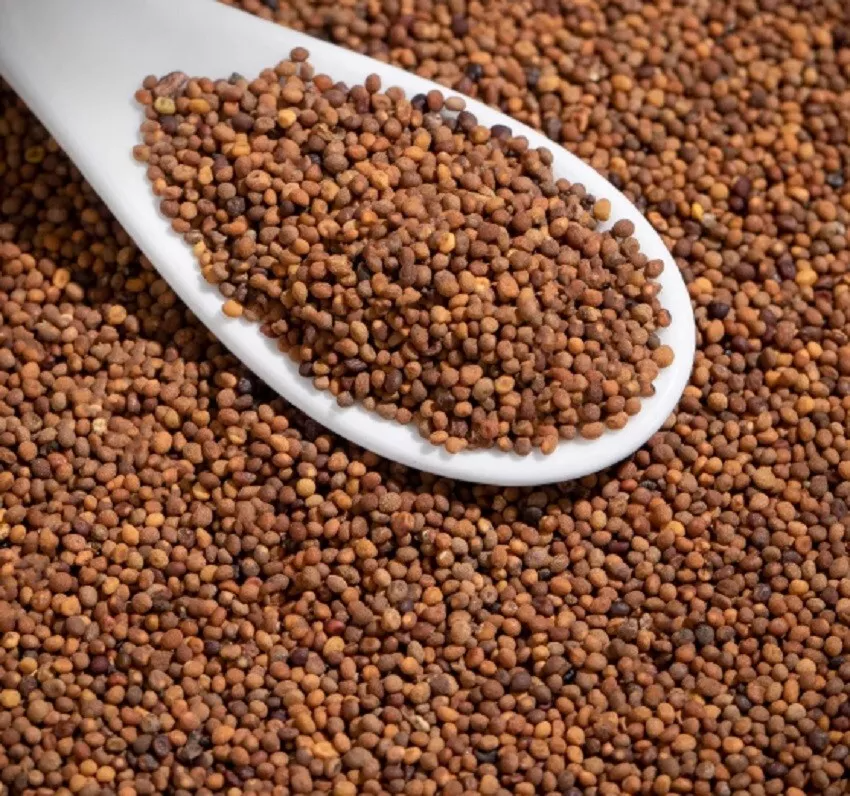
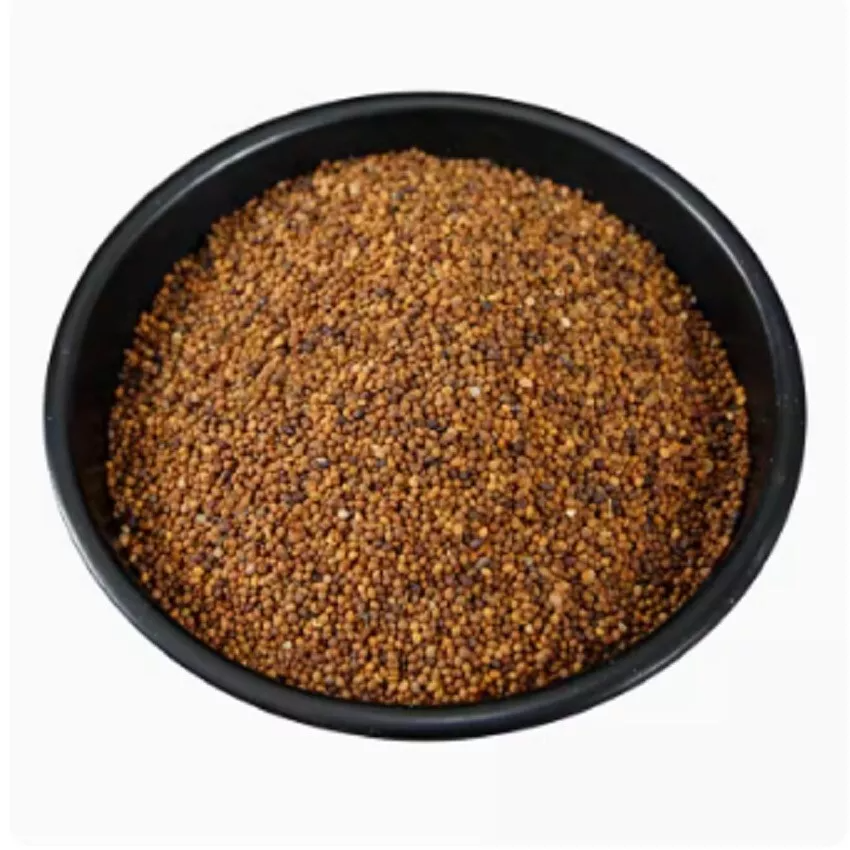
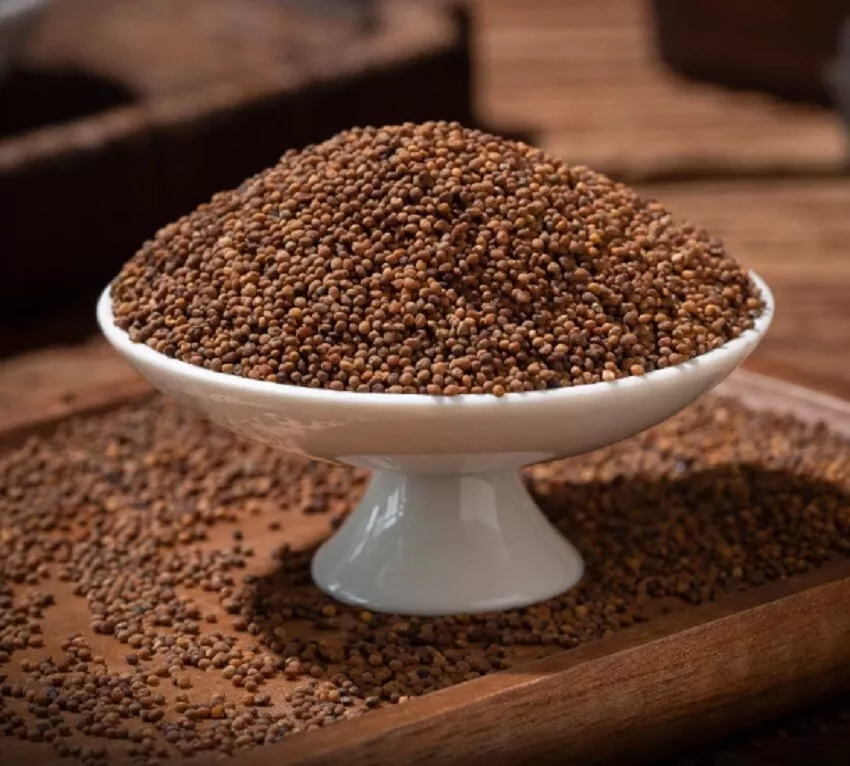
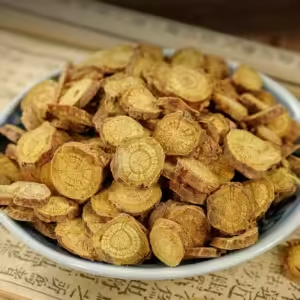
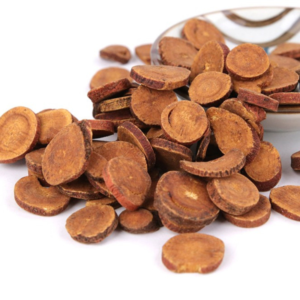
సమీక్షలు
ఇంకా సమీక్షలు లేవు.